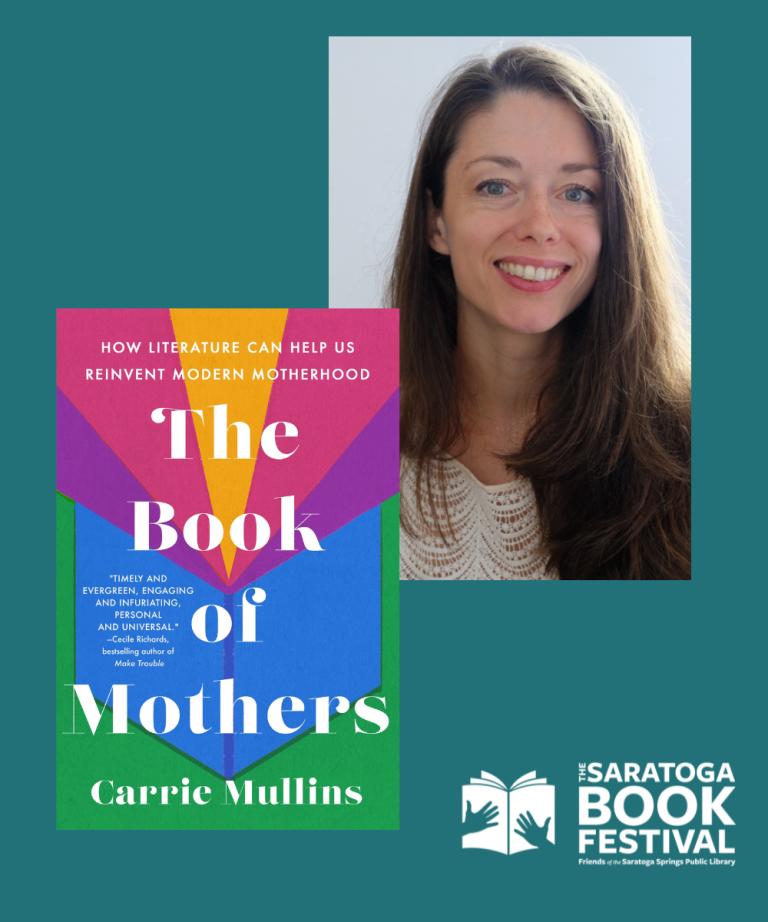
Carrie Mullins is the author of The Book of Mothers, available now from St. Martin’s Press.
She is a journalist and essayist whose work has appeared in Parents, Food & Wine Magazine, Epicurious, Tin House, and Publishers Weekly, among other publications. She is a former National Editor at the James Beard Award-winning website Serious Eats and a longtime contributor to Electric Literature, where she covered the intersection of literature and culture. She lives in New York City with her husband and sons.
SESSION INFO:
Saturday, October 5, 3:30pm at Saratoga Springs Public Library, Dutcher Community Room: Motherhood in Fiction with Carrie Mullins and Daphne Uviller
Books
About The Book of Mothers
This treasure trove for book lovers explores fifteen classic novels with memorable maternal figures, and examines how our cultural notions of motherhood have been shaped by literature.
Sweet, supportive, dependable, selfless. Long before she had children of her own, journalist Carrie Mullins knew how mothers should behave. But how? Where did these expectations come from—and, more importantly, are they serving the mothers whose lives they shape? Carrie's suspicion, later crystallized while raising two small children, was that our culture’s idealization of motherhood was not only painfully limiting but harmful, leaving women to cope with impossible standards––standards rarely created by mothers themselves.
To discover how we might talk about motherhood in a more realistic, nuanced, and inclusive way, Carrie turned to literature with memorable maternal figures for answers. Moving through the literary canon––from Pride and Prejudice and Little Women to The Great Gatsby, Beloved, Heartburn, and The Joy Luck Club—Carrie traces the origins of our modern mothering experience. By interrogating the influences of politics, economics, feminism, pop culture, and family life in each text, she identifies the factors that have shaped our prevailing views of motherhood, and puts these classics into conversation with the most urgent issues of the day. Who were these literary mothers, beyond their domestic responsibilities and familial demands? And what lessons do they have for us today—if we choose to listen?
